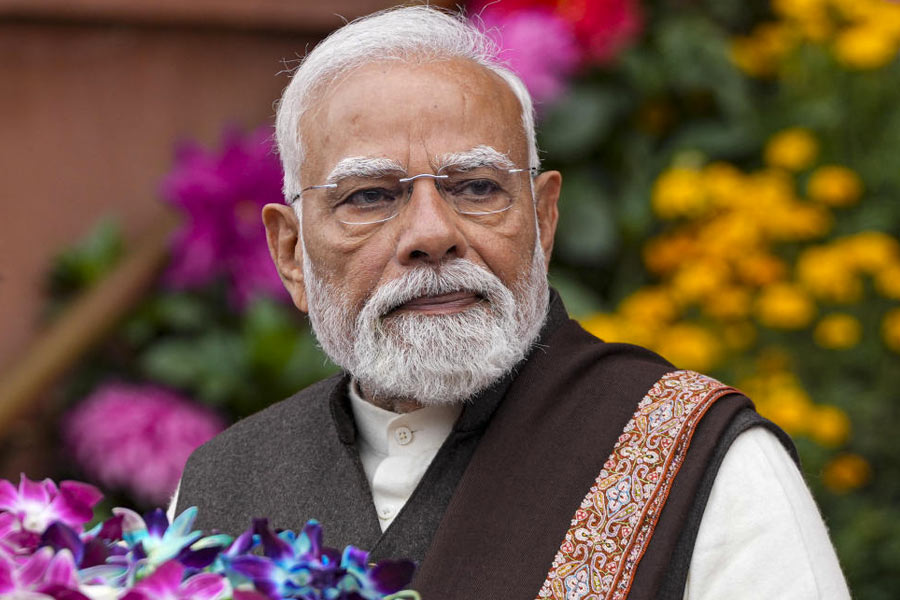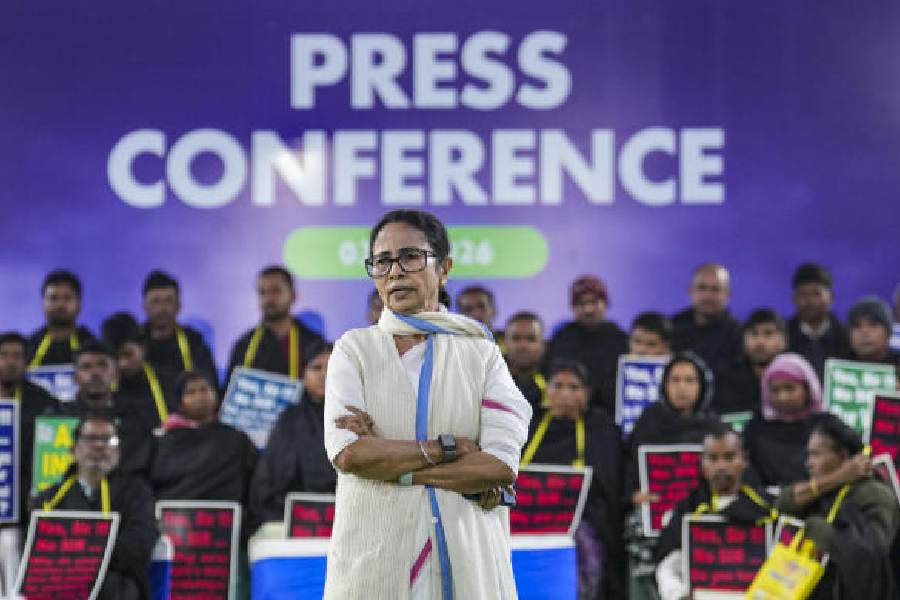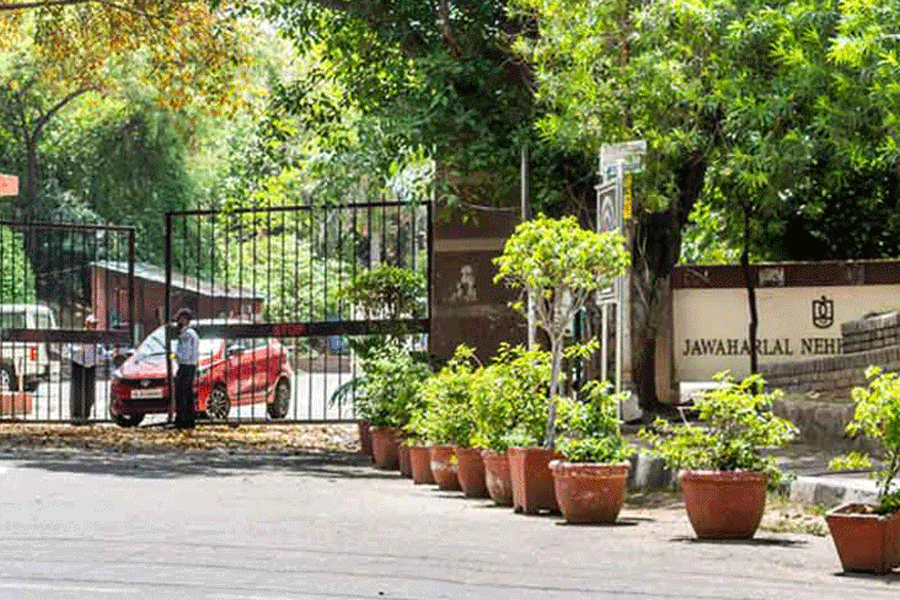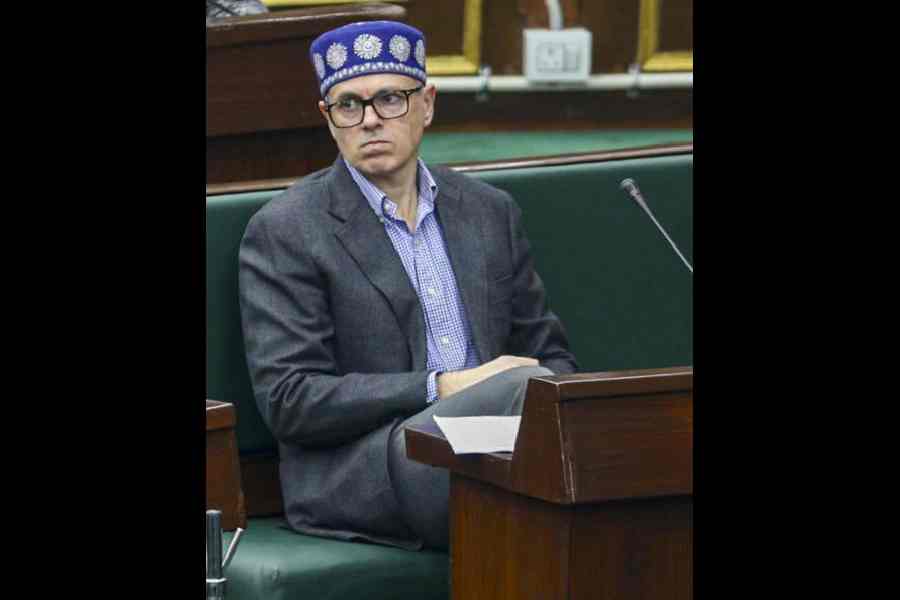.jpg)
Calcutta, Sept. 2: Bengal police had sent Sikkim police a written appeal for assistance before they mounted a raid to arrest the leaders spearheading the Darjeeling agitation, suggests a letter that carries the purported acknowledgement seal of South Sikkim police.
If the authenticity of the letter, its date and the seal is established, the advance notice will strike at the root of the Sikkim police's contention that Bengal police did not inform them before detaining at least six Gorkha Janmukti Morcha leaders in Sikkim yesterday.
It will also raise questions about the role the government of Pawan Chamling, an ally of the BJP, is playing in a matter related to not only sensitive inter-state relations but also strategically significant territory. The Bengal BJP will also be under pressure to explain whether it is firing from the shoulder of an ally to settle political scores and pacify the Morcha, which is also a BJP ally.
As it turned out, Sikkim police prevented Bengal police from taking with them the detained leaders on the ground that there was no prior information and arrest warrant. At least five of the detained leaders were released last night itself in Sikkim and the remaining suspect was granted bail by a court there today.
Pratap Pradhan, senior SP of South Sikkim, had said on Friday: "Sikkim police should have been informed and help sought from officials of South district. No such procedure was adopted."
But the letter, dated August 31, 2017 (Thursday), and signed by an officer of the Siliguri CID, says under the subject "police assistance for raid": "There is credible source information and input that several accused wanted in the above noted case are absconding, are available under your jurisdiction.
"Kindly render necessary police assistance during raid under your jurisdiction to apprehend Bimal Gurung, Prakash Gurung, DK Pradhan and others in connection with the above noted case."
The letter is addressed to "The Superintendent of Police, South Sikkim, Namchi, Sikkim" and carries a jotting "Recd.", a signature and the date "1/9/17" (Friday) and the seal with the inscription "office of the superintendent of police". In the copy accessed by this newspaper, a part of the seal is not visible but the word "south" and the letters "chi", presumably the tail of the word "Namchi", are legible.
The letter is signed by Ajoy Prasad, IPS, special superintendent of police (North), CID, Siliguri, Bengal.
Pradhan, the South Sikkim senior SP who had said yesterday no assistance was sought by Bengal police, could not be contacted by this newspaper today for corroboration of the letter despite repeated attempts.
Asked about the sequence of events and whether the letter was delivered before or after the raid began in Sikkim around Friday noon, a Bengal police officer said it was handed over before the swoop started. Had it been afterwards, Sikkim police would neither have accepted the letter nor stamped the seal in acknowledgement, the officer pointed out.
Sources in Bengal police said a team of officers led by a DSP had gone to the South Sikkim SP's office on Friday and informed him of their intention to raid a location in connection with the case registered with Sadar police station in Darjeeling.
"The letter was endorsed at the SP office and he had offered to help. Next, the team went to Namchi police station and met the SHO who refused to cooperate citing we didn't have an arrest warrant," said an IPS officer in Bengal. An SHO or station house officer is equivalent to the officer in charge or the OC of a police station in Bengal.
Pradhan, the South Sikkim SP, had also said yesterday that Bengal police should have gone there with an arrest warrant after obtaining the court's permission.
But sources in Bengal police said that when developing situations emerge and detailed FIRs had been drawn up with charges under the Arms Act (the relevant sections were mentioned in the letter to South Sikkim police), arrest warrants were not mandatory. The arrested persons will in any case be presented in court which will decide whether to grant bail or not, they said.
Inter-state police forces usually cooperate with each other when advance information is shared - unless the political leadership intervenes and dictates otherwise. The usual source of friction is unilateral action by police squads from other states after keeping the local law-enforcement agencies in the dark.
Yesterday, when Bengal police closed in on a Morcha central committee meeting, its leader Bimal Gurung had managed to flee. Officers in Bengal police said had Sikkim police cooperated, Gurung could have been arrested.

.jpg)








